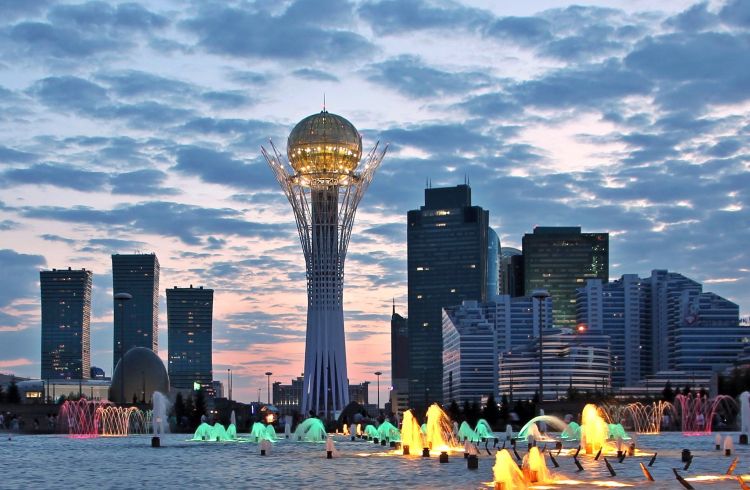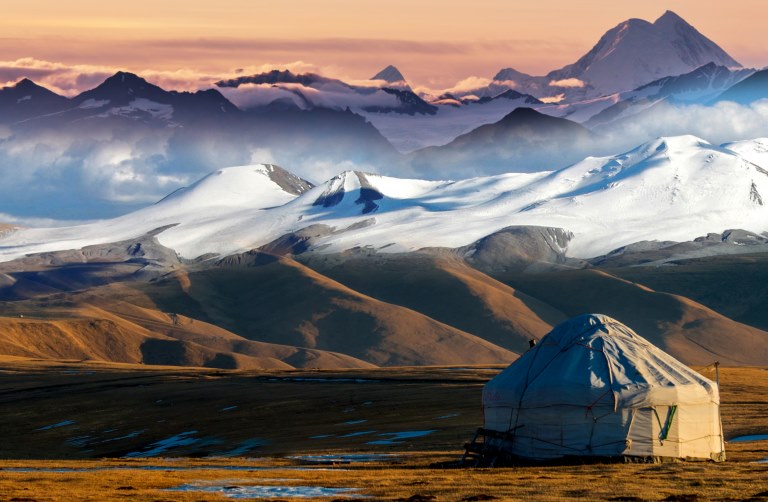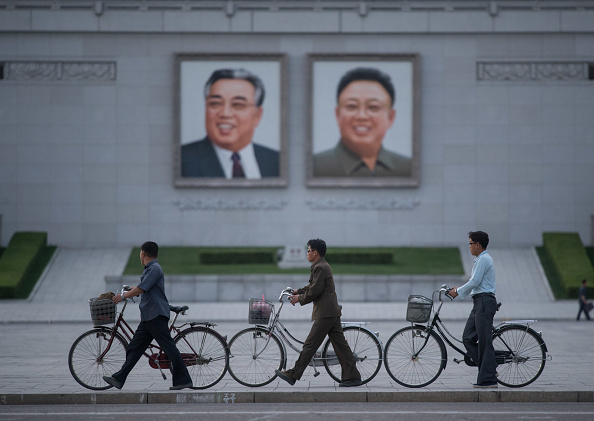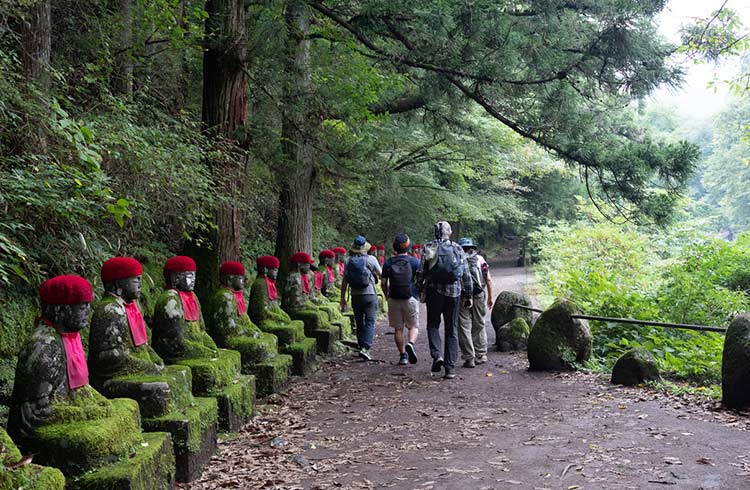Is Kazakhstan Safe? 5 Important Travel Safety Tips
How safe is Kazakhstan for travelers? From transport safety to scams, thieves and corrupt police, here's everything you need to know to have a "very nice" time in Kazakhstan.
 Photo © Getty Images/cosmopol
Photo © Getty Images/cosmopol
When it comes to personal safety in the central Asian country of Kazakhstan, there is some good news - crime is falling. However, theft and fraud are still something to be wary of. If you are prepared and on-guard though, you can still have a great time in this beautiful country.
Despite what you might have seen in the Borat films, Kazakhstan is an incredible destination for travelers to discover. Here are our top tips to stay safe and types of crime you should know about before traveling to Kazakhstan.
- Crime in Kazakhstan
- Places to avoid in Kazakhstan
- Is public transport safe in Kazakhstan?
- Common travel scams in Kazakhstan
- Corruption in Kazakhstan
Crime in Kazakhstan
In the 2025 Global Peace Index, Kazakhstan ranks 56 out of 163 countries when it comes to safety and peace, surpassing all neighboring states in the region, including Armenia (58th), Uzbekistan (67th), Kyrgyzstan (78th), Tajikistan (79th), and Turkmenistan (87th). While this is overall good news for Kazakhstan, some areas within the country did see a rise in crime this year. For example, the Mangystau Region recorded a 12.2% rise, and the Atyrau Region 8.5%.
Most urban areas are safe to travel during the day. However, you should avoid walking alone at night, as there are some urban areas where travelers have been robbed after sunset, and the general advice is to avoid walking the streets alone in the dark.
Even in a group, it's smart to avoid arguments with locals. Leave the area if a fight does break out. An extremist element does exist in and around Kazakhstan, and terrorists, including suicide bombers, have targeted civilians in restaurants and at night clubs.
Travelers have also reported unfriendly attitudes by locals toward foreigners in parts of western Kazakhstan – so travel with extra caution here if you visit.
During periods of civil unrest, the situation can become hostile in Kazakhstan. Stay across the news before you go and while you are there, and avoid large crowds which are unpredictable during periods of unrest.
Places to avoid in Kazakhstan
In Almaty’s nightlife districts — especially after dark and in less-lit side streets or lesser known bars — visitors have reported incidents of drink spiking and petty theft. While it’s not officially restricted, travellers should exercise heightened caution, avoid walking alone at night in unfamiliar areas, and keep drinks in sight and sealed.
Smaller districts within Almaty, including the Shanyrak area, should be avoided. Check with your accommodation provider for their tips and advice. Foreign travelers and residents have been attacked and mugged in Atyrau and Aktau, but security is improving.
Smaller towns in Kazakhstan may have less police resources and therefore be less safe. If you do go to a smaller town, try to stick to main roads and get back to your hotel before dark.
Thieves may target Western hotels and tourist areas, so you should always keep your doors and windows locked in your accommodation; criminals may wait in unlit stairwells for their next target. Open-air markets are also hot targets for thieves, so keep your belongings secure and in sight at all times.
Check your government’s travel advice for any recent updates.
Is public transport safe in Kazakhstan?
Like elsewhere, public transport is a hotspot for thieves who are on the lookout for easy targets on trains, buses and at transport stations. Some unlicensed taxi drivers may take advantage of solo travelers, so be extra cautious before hopping in a cab and negotiate an appropriate fare before they drive off.
Criminals also operate at airports by finding out passengers' names through the often non-private plane lists and gaining their trust by standing with a sign with the their names when they arrive. They will then offer to take you to your hotel, but instead take you to a remote area and rob you. Provincial airports are more known for this type of activity.
Common travel scams in Kazakhstan
There are a number of common travel scams in Kazakhstan. One such scam is the "lost wallet ploy", where a thief claims to find a wallet and then tries to split the money with you. His partner saunters up and says it's his wallet, and forces you to give him money.
The twist on this scam is the person who comes looking for a lost wallet and demands you show your purse or pockets to prove you haven't stolen it. The thief then grabs all your belongings and darts away.
There is another scam where locals pose as cops and demand money from you. You can tell who's a legitimate police officer by his approach – the real ones will always show their badges or produce them upon request.
Corruption in Kazakhstan
Corruption remains a concern in Kazakhstan’s law-enforcement system: police officers are among the most frequently detained for bribery and corruption offences.
Travelers should remain aware that public drunkenness is illegal in many locations and being visibly intoxicated in public may lead to a fine or detention. While there aren’t verified reports of widespread scams where visitors are deliberately ‘arrested’ for the purpose of robbery, instances of bribe solicitation, extortion and misuse of authority do occur, especially in areas with weaker oversight. As a precaution, avoid walking alone at night in unfamiliar towns, keep a record of your travel documents and know your country’s consular contact details.
Other public officials might also play games with travelers. In the Almaty airport, for example, visitors have reported customs officials demanding they pay up to US $500 for some vague violation. Others might be forced to pay a fine just for leaving the country.
Even non-corrupt officials might do some questionable things to travelers. It's not uncommon for security personnel to put foreign visitors under surveillance in their hotel rooms. This extends from tapping telephones to actually going through your belongings.
Police may also conduct random checks on the street that require you to show your passport; they don't need probable cause to search. You also may be questioned or apprehended if you photograph anything thought to be a matter of national security – so ask before you take photographs of official buildings.
Before you buy a travel insurance policy, check your government travel warnings and health advice – there may be no travel insurance cover for locations with a government travel ban.
Related articles
Simple and flexible travel insurance
You can buy at home or while traveling, and claim online from anywhere in the world. With 150+ adventure activities covered and 24/7 emergency assistance.
Get a quote


3 Comments